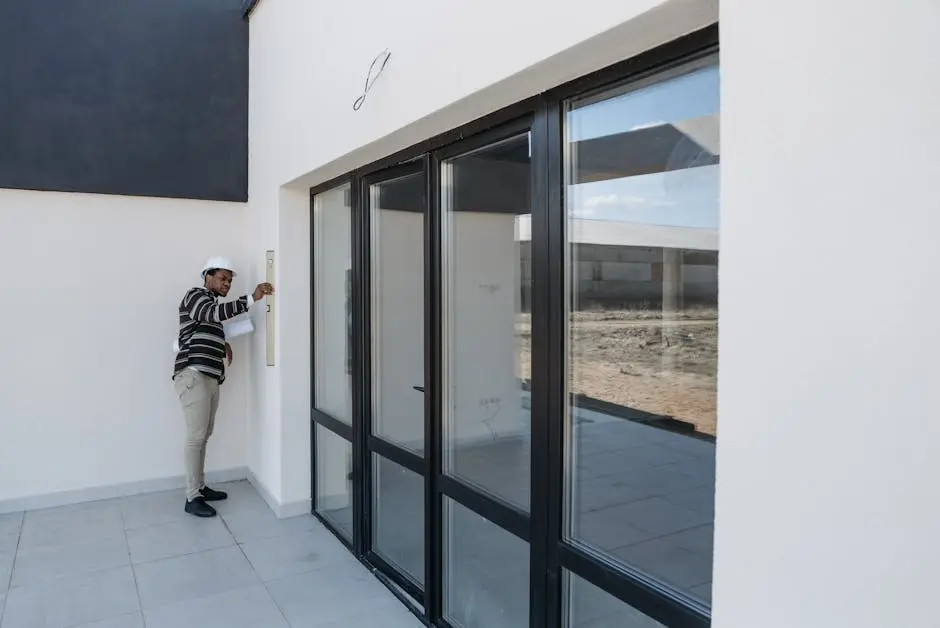Buying a home is one of the biggest investments you’ll ever make. Whether you’re a first-time buyer or a seasoned homeowner, ensuring your potential new home is safe and sound is essential. That’s where building inspections come in. In this blog, we’ll explore why getting a professional building inspection is a must for every homebuyer.
Understanding the Basics of Building Inspections
Before diving into the details, it’s important to understand what a building inspection is. A building inspection examines the condition of a property, highlighting structural issues and potential repairs. These assessments are meant to give prospective homebuyers a clear picture of what they might be purchasing. They include examining everything from the roof to the foundation, ensuring that there are no hidden surprises waiting for you. This process helps you avoid the risk of moving into a home only to discover costly repairs that you weren’t prepared for.
Building inspections are more than just a formal requirement; they are a chance for you to engage with an expert about the real state of the property. Inspectors are trained to look beyond what is immediately visible, assessing the long-term sustainability of home systems like plumbing and electrical. By understanding the basics, you empower yourself not only as a buyer but also as a future homeowner who is well-informed about what your home truly offers.
How Building Inspections Protect Homebuyers
The primary goal of a building inspection is to protect you from potential hazards and financial pitfalls. For instance, the inspection can reveal hidden dangers such as asbestos or radon, substances that can have long-term health impacts if left unchecked. In newer constructions, an inspection can still be invaluable, catching mistakes or low-quality materials that might have slipped through the initial building phase. The peace of mind that comes from knowing exactly what you are buying is invaluable and enables you to negotiate better terms or even reconsider your purchase if significant issues are found.
Consider a scenario where a costly foundation issue is uncovered during an inspection. This discovery could save you from future trouble by allowing you to address the problem early or negotiate repairs with the current owners. The inspection acts as your safeguard, protecting not just your finances but also your health and safety within the new home. For those who are looking to customize or renovate, a preemptive inspection sets the stage for what is realistically possible without incurring unexpected costs.
What Inspectors Look For During an Inspection
During an inspection, professionals assess a wide range of aspects within a property. This includes checking the condition of the roof, which can prevent damaging leaks, and inspecting the foundation for signs of settling or cracks that could indicate serious structural issues. Plumbing and electrical systems undergo scrutiny to ensure they are up to code and free of hazards. Even the property’s insulation and ventilation are evaluated to guarantee energy efficiency.
Inspectors also pay close attention to the exterior and interior surfaces, looking for signs of moisture damage, mold, or pest infestations. These issues, if left unattended, can lead to significant deterioration over time. The thoroughness of the inspection leaves no stone unturned, ensuring every corner of the home meets established safety and quality standards. This diligence provides buyers with the information needed to make educated decisions or prepare for future maintenance tasks, contributing to the longevity of your investment.
The Cost of Skipping a Building Inspection
While it might be tempting to skip an inspection to save money, doing so can lead to costly repairs or dangerous living conditions in the future. Inspections are a wise investment. Consider this: spending a fraction of your home’s cost on an inspection can prevent you from spending thousands on unforeseen repairs. Skipping this step may result in inheriting a property riddled with expensive or even hazardous issues, such as outdated electrical systems prone to sparking or hidden mold that affects air quality.
Many homeowners can attest to regretting the decision to bypass a professional inspection as they discover problems like termite damage or roofing issues too late. These can often turn a dream home into a financial drain. An inspection is your first line of defense against buyer’s remorse and unmanageable repair bills. For those with a protective mindset towards their investment, skipping an inspection is simply not an option.
Choosing the Right Building Inspector
Not all inspectors are created equal. It’s crucial to choose a certified and experienced professional to conduct your inspection to ensure you’re getting comprehensive and accurate information. When selecting an inspector, consider their credentials, experience, and reviews. Opt for someone who not only has the necessary certifications but also a proven track record of thorough inspections.
Communicate clearly about the areas you are concerned about and ensure that the professional inspector provides a detailed report. A detailed inspection report is a useful tool not just for negotiating purchasing terms, but also for planning future renovations or maintenance. As a smart homebuyer, your first steps should include partnering with a qualified inspector who prioritizes transparency and thoroughness in their evaluation process. Making the right choice in inspector can make all the difference in the security and satisfaction of your home buying experience.
The Essential Role of Building Inspections
Building inspections are more than just a step in the home buying process; they are an essential practice that protects your investment and ensures peace of mind. By getting a comprehensive inspection, homebuyers can avoid unexpected surprises and make informed decisions about their future home. For more information on how we can assist with your home inspection needs, visit Optima Home Inspections.


